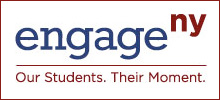12.E1 - Individual Responsibility and the Economy
From EngageNY
INDIVIDUAL RESPONSIBILITY AND THE ECONOMY: Individuals should set personal financial goals, recognize their income needs and debt obligations, and know how to utilize effective budgeting, borrowing, and investment strategies to maximize well-being.12.E1a In making economic decisions in any role, individuals should consider the set of opportunities that they have, their resources (e.g., income and wealth), their preferences, and their ethics.
12.E1b Sound personal financial (money management) practices take into account wealth and income, the present and the future, and risk factors when setting goals and budgeting for anticipated saving and spending. Cost-benefit analysis is an important tool for sound decision making. All financial investments carry with them varying risks and rewards that must be fully understood in order to make informed decisions. Greater rewards generally come with higher risks.
12.E1c Managing personal finance effectively requires an understanding of the forms and purposes of financial credit, the effects of personal debt, the role and impact of interest, and the distinction between nominal and real returns. Predatory lending practices target and affect those who are least informed and can least afford such practices. Interest rates reflect perceived risk, so maintaining a healthy credit rating lowers the cost of borrowing.
12.E1d To be an informed participant in the global economy, one must be aware of inflation and have an understanding of how international currencies fluctuate in value relative to the United States dollar.
Learn more on Engage NY
EngageNY.org is developed and maintained by the New York State Education Department (NYSED) to support the implementation of key aspects of the New York State Board of Regents Reform Agenda.
This is the official web site for current materials and resources related to the Regents Reform Agenda. The agenda includes the implementation of the New York State P-12 Common Core Learning Standards (CCLS), Teacher and Leader Effectiveness (TLE), and Data-Driven Instruction (DDI). EngageNY.org is dedicated to providing educators across New York State with real-time, professional learning tools and resources to support educators in reaching the State’s vision for a college and career ready education for all students.














